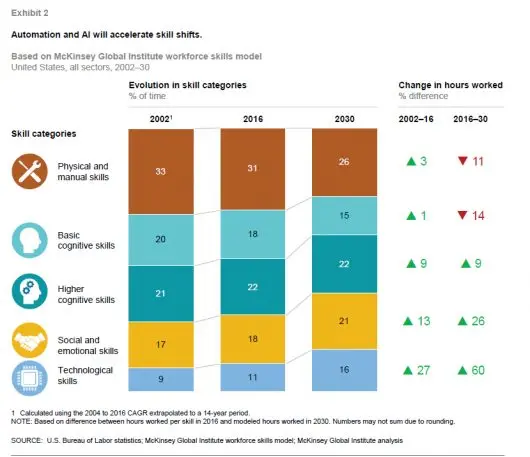Here’s further evidence that robots and automation aren’t going to replace workers. A new McKinsey Global Institute paper looked at 25 core workplace skills today and in the future for the U.S., France, Germany, Italy, Spain, and the U.K. The report found that there will be significant changes in what workers need to know in the coming decade.

Here’s what demand will look like by 2030:
- Demand for technological skills, both basic digital and advanced tech, will rise by 55%
- Demand for social and emotional skills, such as leadership and managing others, will rise by 24%
- Demand for basic cognitive skills, which include basic data input and processing, will decline by 15%
- Demand for physical and manual skills, which include general equipment operation, will decline by 14%
Eric Hazan, a senior partner at McKinsey & Company in Paris and a coauthor of the report, warned that the skill shift could cause further exacerbate income inequality and a divide between companies that can and can’t attract top talent. “The watchword of the new era will be adaptability,” he said in a statement. “Workers but also companies will need to be open and embrace new forms of working, new structures, and new approaches, in a world of work that will be changing rapidly.”
Recognize your brand's excellence by applying to this year's Brands That Matters Awards before the early-rate deadline, May 3.
